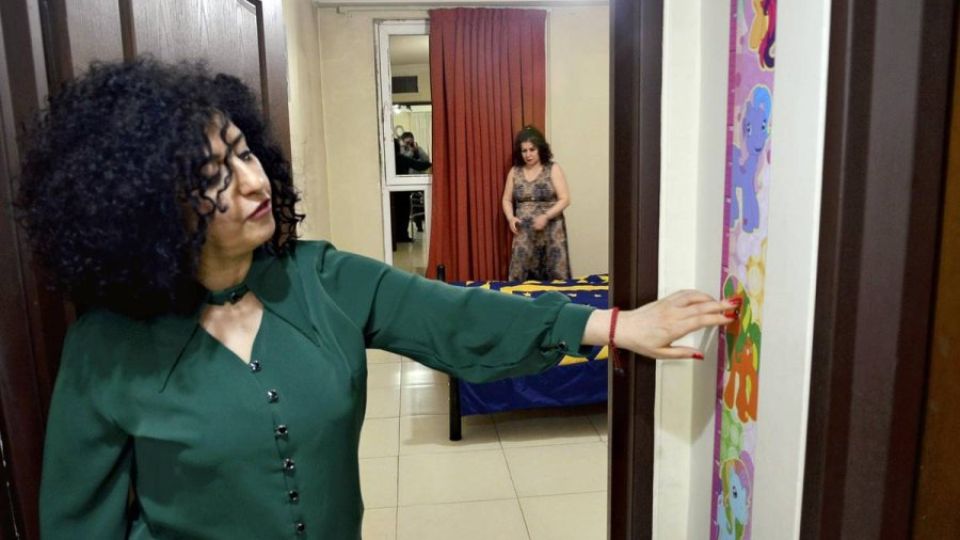December 11, 2024
TEHRAN – Last year’s Nobel Peace Prize laureate Narges Mohammadi, who has been released temporarily from a Tehran prison on medical grounds, vowed to continue her fight for women’s rights. “I will not keep silent,” she said during an exclusive interview with The Yomiuri Shimbun.
Mohammadi gave her first in-person interview with a media organization since receiving her Nobel Prize at her home in the Iranian capital on Thursday.
Mohammadi, 52, a political prisoner, had surgery about three weeks ago mainly to remove a tumor from her right leg. She was granted temporary medical leave from prison on Dec. 4 for a period of 21 days. She has a brace on her right leg and currently uses a walker. But with her high spirits, she does not look like a longtime prisoner.
“Within these 21 days, I will not keep silent,” Mohammadi said in the interview. “It doesn’t matter if these 21 days are going to change into two days or 22 days. It will not affect my decision.”
She expressed deep concern about the oppression of women in Iran and Afghanistan, saying, “I think talking about peace and democracy in the current world without paying attention to women’s rights is impossible or meaningless.”
Call for solidarity from Japan
Mohammadi on Thursday evening invited Yomiuri Shimbun reporters to her home, along with her relatives, fellow human rights activists and supporters. With the painful-looking brace on her right leg, she talked with the visitors for more than five hours.
Mohammadi is a political prisoner who has been sentenced to lashings and a total of more than 30 years in prison on charges that include spreading propaganda against the state. However, the authorities have imposed no major restrictions on her during her release. No obvious signs of surveillance were seen around her home.
Even if restrictions are imposed, “I will not accept them,” she insisted.
According to Mohammadi, news of the Nobel prize win in October last year reached her through an inmate who had learned about it from another inmate who was allowed to talk on the phone with people outside the prison.
“I think the Nobel Peace Prize created an opportunity not only for me but also for Iranian women and the country to accomplish democracy and achieve women’s rights,” said Mohammadi.
Her 55-year-old brother, Mehdi, and his wife are currently in Tehran from Mashhad, northeastern Iran, to take care of Mohammadi. “Twenty-one days is too short. I hope the temporary release will become a full release,” he said.
During the interview, Mohammadi also delivered a message for women in Japan. “I think that the interaction and dialogue between women in various societies can lead to reciprocal growth of the societies,” she said. “I hope that such dialogues and interactions will be created between women of Iran and Japan.”
Separated from her twins

Narges Mohammadi speaks during an interview with The Yomiuri Shimbun in Tehran on Thursday. PHOTO: THE YOMIURI SHIMBUN
When the topic shifted to her 18-year-old twin children — Ali and Kiana, who live in exile in Paris with their 65-year-old father, Taghi Rahmani — Mohammadi walked over to where the wallpaper had been marked with the twins’ heights, and wondered aloud how tall her children had grown.
About a decade ago, her twins fled Iran amid growing government pressure on Mohammadi, and Rahmani later joined them. Since then, Mohammadi has been unable to see them in person as she has been arrested and imprisoned multiple times.
“When they were leaving [Iran], they were a bit taller than 1 meter,” she said while tracing with her finger over the wallpaper of cartoon animals where her twins’ heights had been marked.
“I have kept this, so that when they come back someday, I will measure their height and know how much I have lost,” she said.
Though a strong-willed human rights activist who has refused to buckle under pressure, Mohammadi is also motherly, and related how missing out on so much time with her children caused her “deep sorrow.”


